Where does each party stand regarding Iran nuclear deal?
As the future of the Joint Comprehensive Plan of Action (JCPOA) hangs in the balance, the signatories to the JCPOA – commonly known as the Iran nuclear deal – have begun to take contrasting positions with the same professed aim of reviving the deal, which has been under US assault since 2018.
So far, a month has passed since Joe Biden replaced Donald Trump in the Oval Office, but the United States has not taken any meaningful measures to alleviate the impact of sanctions illegally and incrementally imposed on Iran since the second year of the Trump administration.
The JCPOA was struck between Iran and six world powers – the US, China, Russia, France, Britain and Germany – in July 2015. It promised Iran a sanctions relief in exchange for some limits on its nuclear program.
In May 2018, Trump unilaterally withdrew the US from the JCPOA and imposed the “harshest ever” sanctions on Iran, so that he could make a “better deal” with Tehran compared to the historic accord signed under his predecessor Barack Obama.
Almost three years forward, the Biden administration claims it is ready to re-engage with Iran and rejoin the JCPOA, which was signed when Biden was vice president. But the US administration has conditioned its return to the deal on Iran’s full compliance with the deal.
In May 2019, Iran started to take remedial measures in response to the US' provocative withdrawal. Iran’s measures included bi-monthly reductions of its commitments under the JCPOA. At the same time, Iran announced that it will immediately return to full compliance as soon as the sanctions are lifted and its interests under the deal are met.
What each country says:
Iran
Iran has been consistently saying that it does not trust the United States and/or its three European allies – known as the E3 – but at the same time it has voiced readiness to return to honoring its nuclear obligations as soon as the sanctions are lifted.
Following Biden’s victory in the US presidential election, Leader of the Islamic Revolution Ayatollah Seyyed Ali Khamenei warned of US plots to return to the JCPOA without lifting the sanctions.
“Concerning the JCPOA, I should just say one word. We have heard many nice words and promises that have been violated and have not been fulfilled in action,” Ayatollah Khamenei said on Wednesday. “But this time around, [we accept] only actions!”
President Hassan Rouhani has underlined that the only way to save the deal is to lift the United States’ “inhumane sanctions” on Iran, in which case “we will also completely implement our obligations within the framework of the JCPOA.”
He also vehemently rejected the notion of changing some parts of the JCPOA, saying it would be “impossible” to modify the deal.
Foreign Minister Mohammad Javad Zarif says Biden has maintained Trump’s disgraceful “maximum pressure” policy against Iran. Zarif has denounced the US and the E3 for trying to put the blame on Iran despite their own liability in the matter. And he has urged the Biden administration to unconditionally lift all of the sanctions.
China
China has cautiously welcomed the “rare opportunity” created since Biden became president to bring the JCPOA back on track.
“China believes the unconditional return of the United States to the JCPOA as soon as possible is the key to breaking the deadlock,” Chinese Foreign Ministry spokesperson Hua Chunying said at a press briefing on Friday.
Hua said Beijing has made active efforts toward holding an international meeting attended by JCPOA participants and the US to come up with a roadmap for a US resumption of compliance through talks.
She also said China welcomes the “positive gesture” by all parties to push forward the political settlement process of the Iranian nuclear issue through diplomatic dialogue.
Earlier, the Chinese Foreign Ministry said via Twitter that the US needs to return to the JCPOA unconditionally as soon as possible and “lift all sanctions” on Iran, emphasizing that the move would be “the only correct approach” to resolving the impasse.
The remarks came after the Biden administration backed away from a failed attempt by the Trump administration to reimpose UN sanctions on Iran. The move, while viewed by many observers as a positive gesture, does not have any impact in practice.
Russia
Meanwhile, Russia welcomed the US gesture, with Kremlin spokesman Dmitry Peskov saying it was a “good thing” that Washington was no longer calling for international sanctions on Iran. However, Peskov emphasized that it is the restoration of the JCPOA regime that is important.
“Sanctions pressure did not help the implementation of the agreement and brought the situation to a dead end,” Peskov told reporters on Friday.
Sergei Ryabkov, Russia’s deputy foreign minister, has already called on the US to show readiness to rejoin the JCPOA by lifting all sanctions on Iran.
“It would be important to start by lifting all sanctions, which formed the backbone of the so-called policy of maximum pressure towards Iran under the Trump administration,” Ryabkov told reporters on Monday.
Germany
In recent days, Germany has been actively engaged in diplomatic efforts. Nevertheless, it has sided with its traditional ally – the United States – instead of holding the US accountable.
In a phone call with President Rouhani, German Chancellor Angela Merkel expressed her concern “that Iran continues to fail to meet its obligations under the nuclear agreement.” Merkel, however, failed to express concerns over the impacts of Washington’s illegal withdrawal from the JCPOA and the United States’ unilateral sanctions, that have severely hampered Iran’s efforts to contain the coronavirus outbreak.
Taking an even more hostile position toward Tehran, German Foreign Minister Heiko Maas said Iran was “playing with fire,” and that its most recent steps risked discouraging the US from returning to the JCPOA.
Maas called for “supporting the US” on its path back to the JCPOA, but added that the deal’s resuscitation is “complicated quite" due to Iran's measures.
France
France, which hosted a joint meeting of top European and US officials on Thursday, has taken a position more or less similar to that of Germany.
In addition, French President Emmanuel Macron said last month that Saudi Arabia should be involved in new negotiations with Iran on the JCPOA, claiming that the time remaining before Iran creates a nuclear weapon was “very short.”
“Dialogue with Iran will be rigorous, and they will need to include our allies in the region for a nuclear deal, and this includes Saudi Arabia,” Macron told Al Arabiya on January 29.
The suggestion was flatly rejected by the Islamic Republic, with Iran’s ambassador to the United Nations saying no new country can be added to the already signed JCPOA.
“Participants of the JCPOA are named in Resolution 2231, so we cannot add anyone to it. We cannot cross out any names in the JCPOA,” Majid Takht-Ravanchi said earlier this month.
Takht-Ravanchi’s comment, however, is strictly about the JCPOA. In fact, Iran has repeatedly called for dialog with Saudi Arabia and other countries in the region about regional issues, which it says should exclude extra-territorial countries, including the countries it signed the nuclear pact with.
Britain
While repeating the mantra “Iran must never develop a nuclear weapon”, the UK has also put the onus on Iran for the preservation of the JCPOA.
The Islamic Republic “must comply with its nuclear commitments and preserve the JCPOA,” British Foreign Secretary Dominic Raab said back in September – at a time when the US, under Trump, was trying to illegally snap back the UN sanctions on Iran.
That bellicose attitude toward Tehran has not changed since then.
On Friday, Britain’s Junior Foreign Office Minister James Cleverly said Iran must come back into compliance with the nuclear accord, warning that the West should not send signals that it is going to overlook Iran’s non-compliance with the deal or “just brush it under the carpet.”
“This is in Iran’s hands, they are the ones breaching the conditions of the JCPOA, they are the ones that can do something about this, and they should come back into compliance,” he claimed in remarks to the BBC.
The US
Under Trump, the US tried very hard to kill the JCPOA. It put unprecedented pressure on Iran, which included sanctions and military provocations.
Biden promised to change course in his presidential campaign. He said he would re-enter the JCPOA and use it as a cornerstone to build on.
However, since assuming office, he has failed to keep his promise, and instead, he said he would not lift the illegal sanctions in order to encourage Iran to return to the negotiating table.
The Biden administration has so far taken contradicting positions and measures with regard to the issue.
The US State Department announced on Friday it will continue to discourage countries from supplying arms to Iran.
Under Trump, the US tried to reimpose a UN arms embargo on Tehran, which finally expired in October 2020. The Trump administration’s bid failed miserably at the UN Security Council.
Biden’s move, while reminiscent of that failure, is practically the same move but with a new approach.
“Regardless of the UN’s Iran sanctions architecture, we will continue to use our authorities to dissuade countries from providing arms to Iran,” US State Department spokesperson Ned Price said at a press briefing on Friday.
The announcement was ironically followed by a declaration by Secretary of State Antony Blinken that Trump’s “maximum pressure” policy has failed.
“We have a policy in recent years of so-called ‘maximum pressure’ on Iran that has not produced results. In fact, the problem has gotten worse," Blinken claimed in an interview with the BBC. He also alleged that Iran is now much closer to being able to produce enough fissile material which could be used for military purposes.
He said if Iran returns to its obligations under the nuclear agreement, the US will do the same thing, emphasizing that the US and its European partners were “once again on the same page.”
VIDEO | Al-Zahra: Once vibrant Gaza City reduced to ruins in Israeli bombing and selling
Iraqi volunteers enlist to support Iran against potential US attack
ICE secretly deports Palestinians in Trump ally's private jet to Israel: Report
VIDEO | Press TV's news headlines
IRGC captures nearly a dozen PJAK terrorists in western Iran
Iran, Qatar say keeping regional peace is shared responsibility
AFC Futsal Asian Cup 2026: Iran lifts championship trophy for 14th time
VIDEO | Trump’s Iran strategy: All bluster, no exit


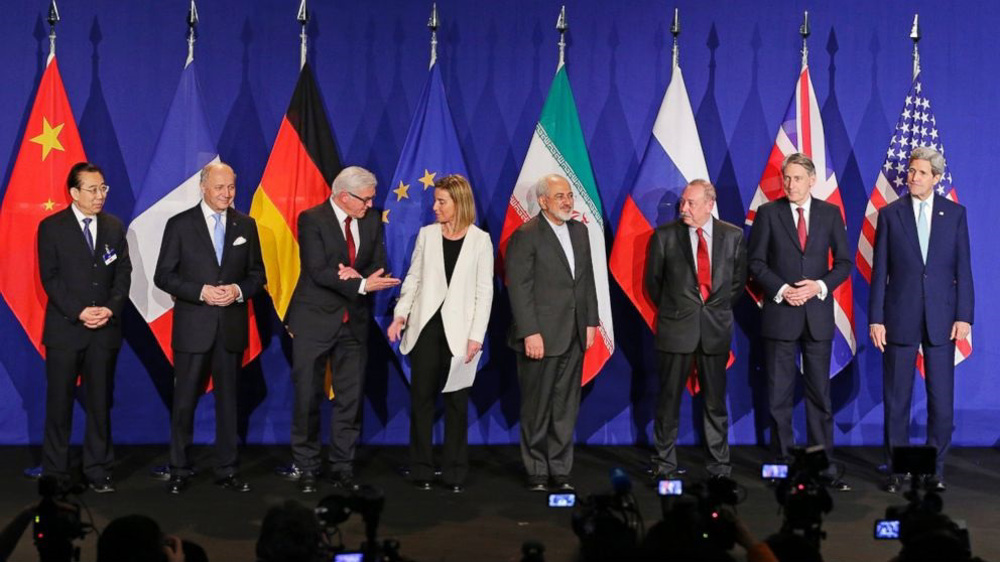



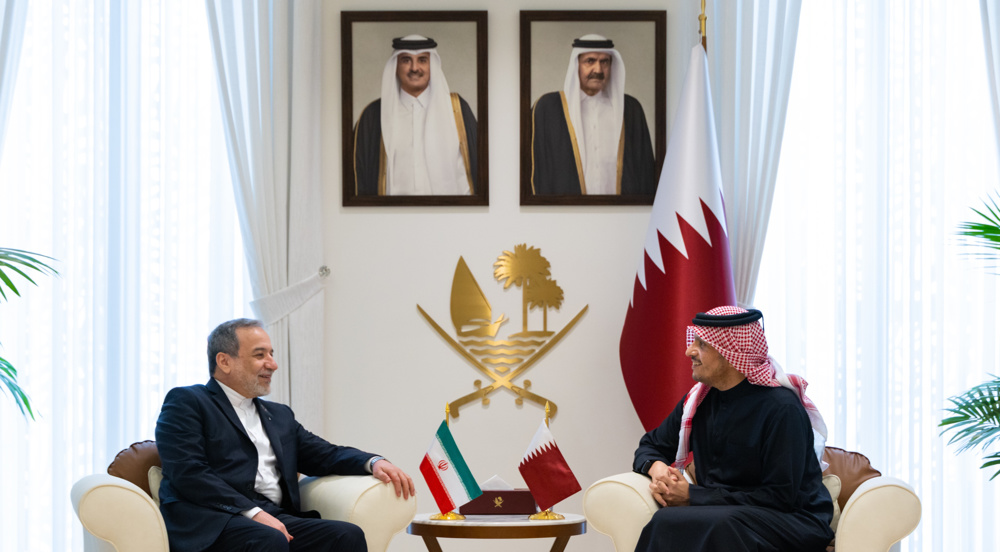
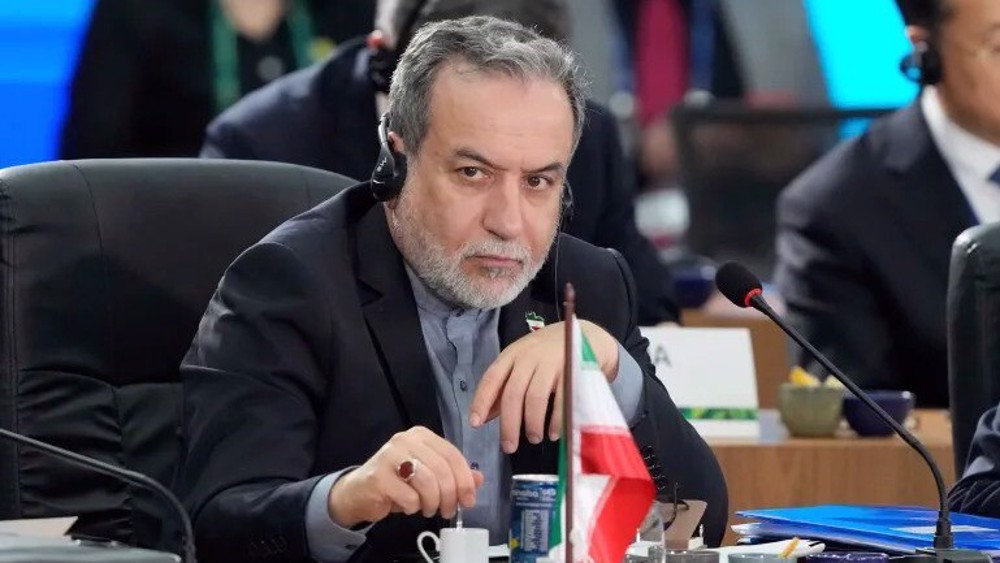
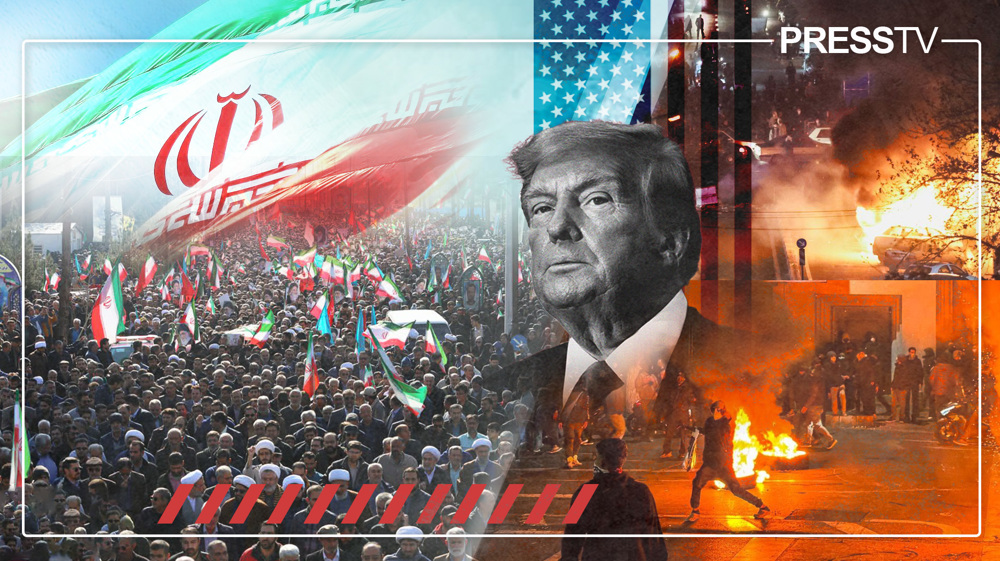



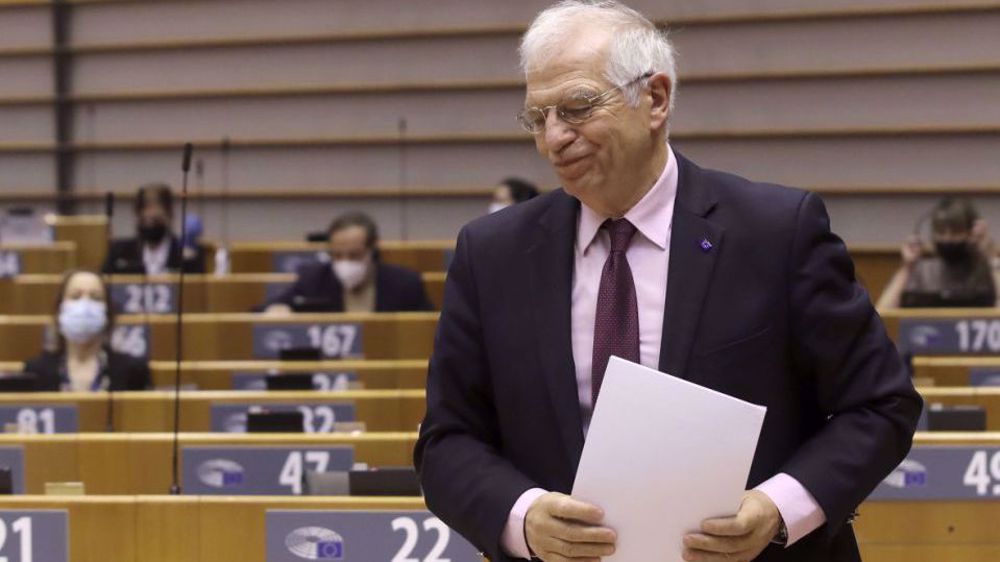
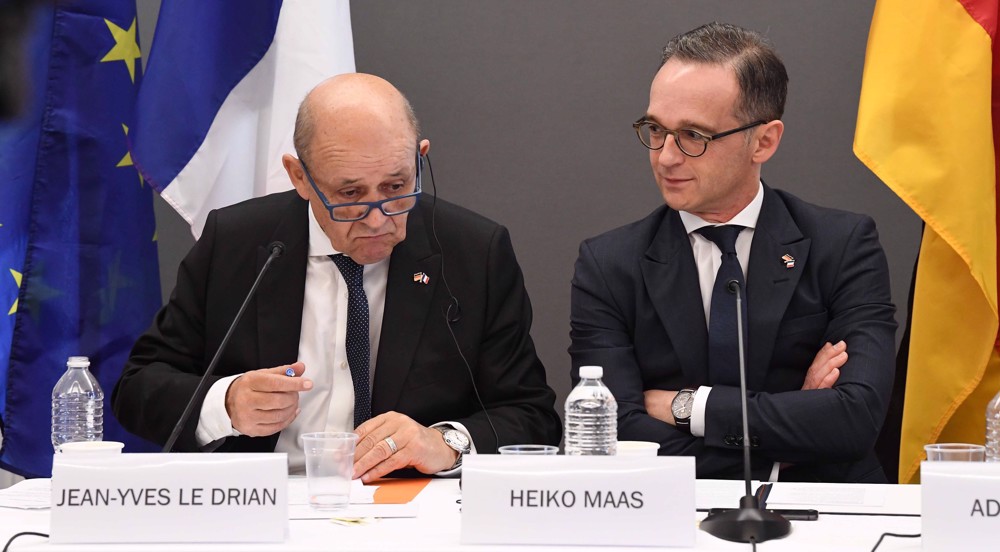
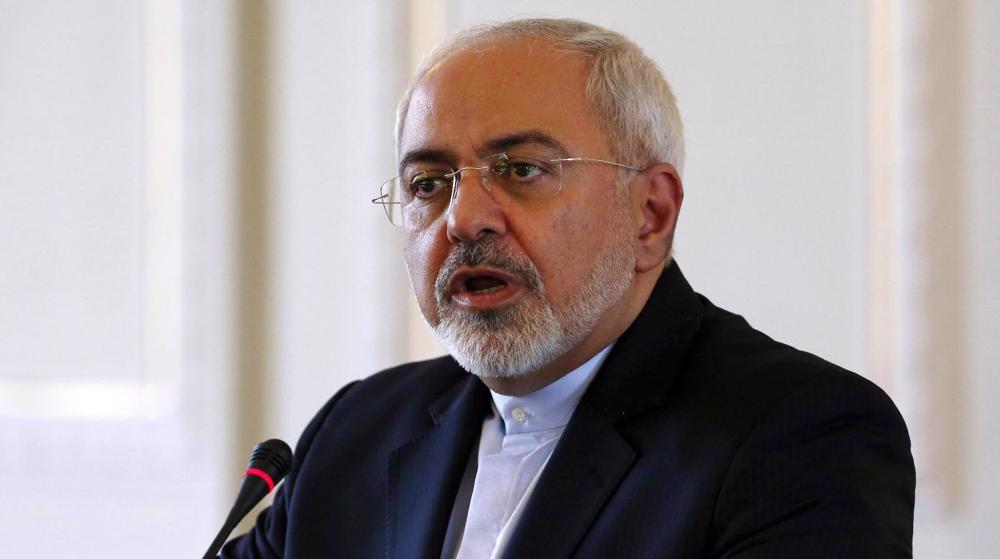
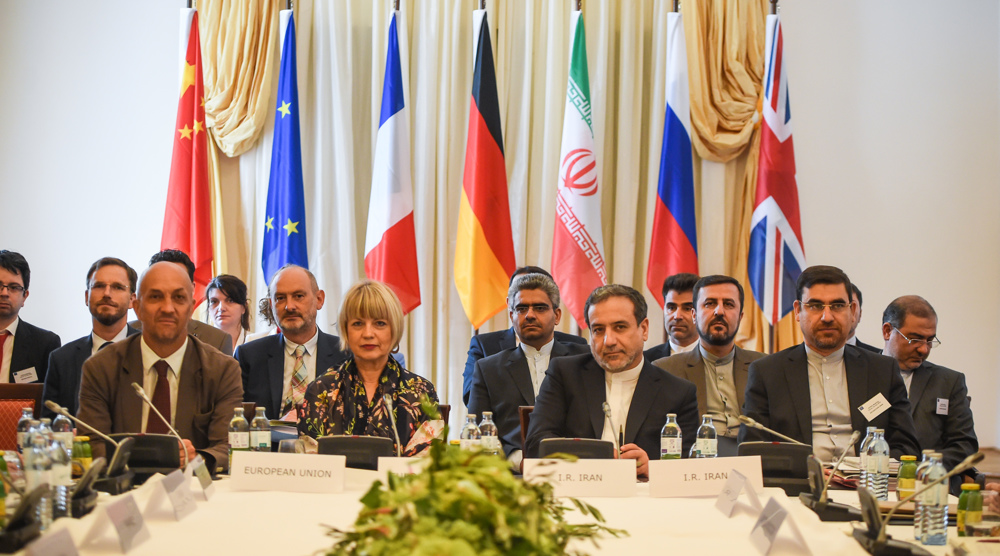
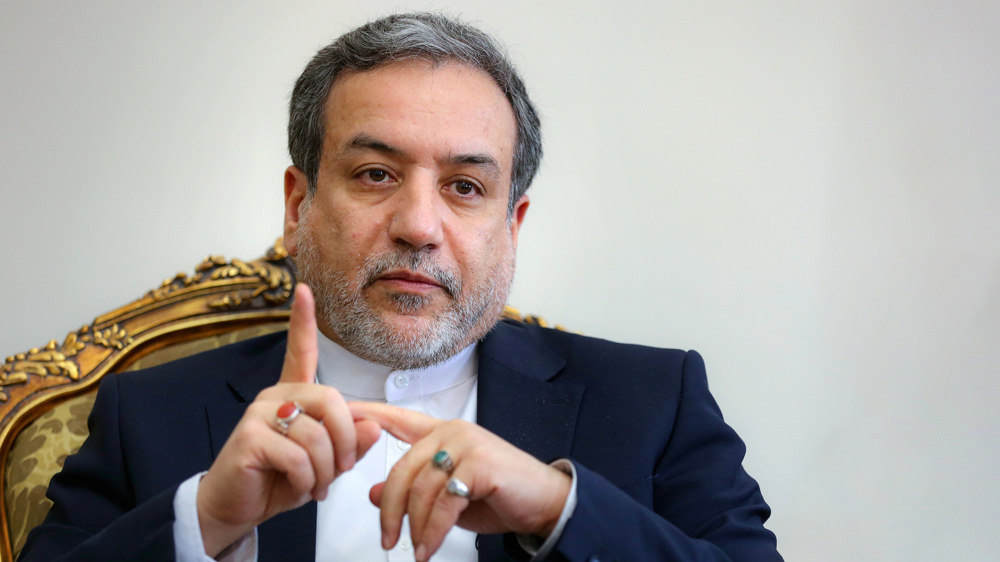
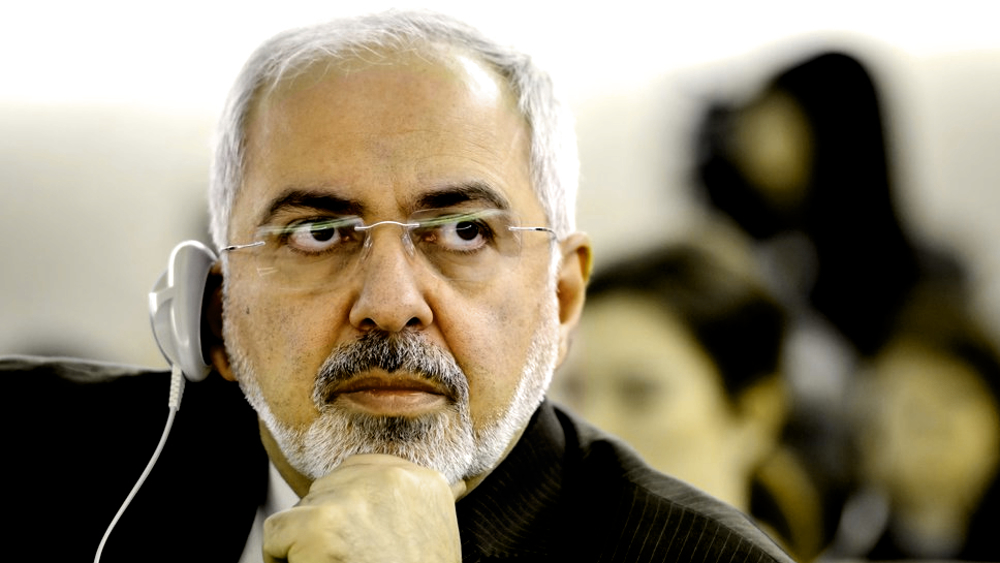

 This makes it easy to access the Press TV website
This makes it easy to access the Press TV website